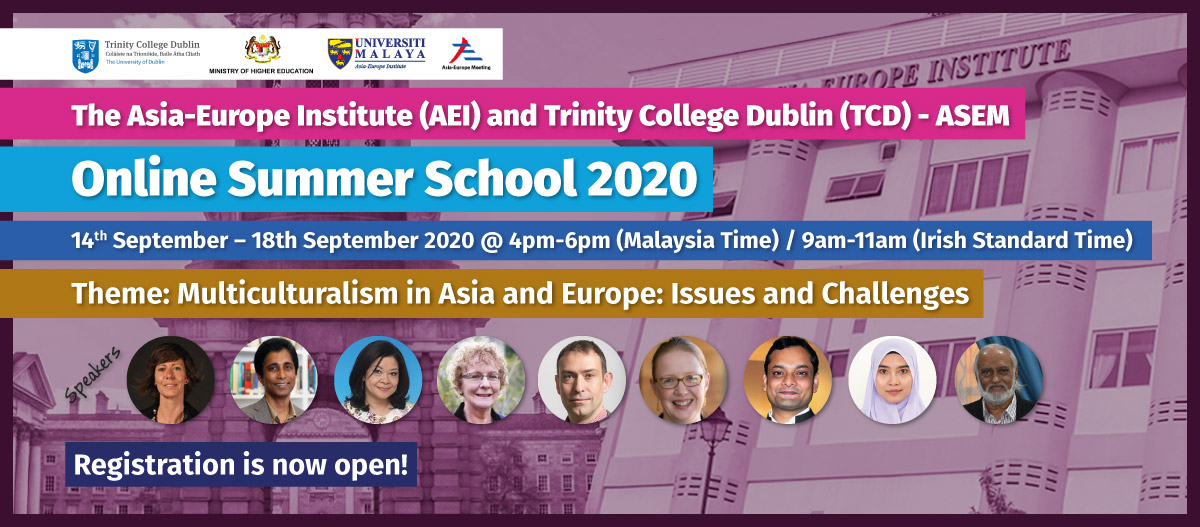
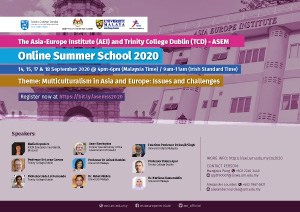
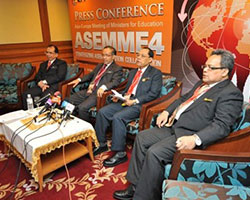 The 4th ASEM Meeting of Ministers for Education (ASEMME4) held in Kuala Lumpur in May 2013 welcomed the willingness of Malaysia and the Asia-Europe Institute of the University of Malaya to develop, in cooperation with other interested ASEM members, a programme that could share what Asia has to offer with students, academicians, and researchers from Europe and other parts of the world.
The 4th ASEM Meeting of Ministers for Education (ASEMME4) held in Kuala Lumpur in May 2013 welcomed the willingness of Malaysia and the Asia-Europe Institute of the University of Malaya to develop, in cooperation with other interested ASEM members, a programme that could share what Asia has to offer with students, academicians, and researchers from Europe and other parts of the world.
In response to this decision of ASEMME4, the Ministry of Education Malaysia, in collaboration with the Asia-Europe Institute, initiated the Asia-Europe Institute-ASEM Summer School (AEI-ASC). The AEI-ASC is designed to be a two-week programme that involves participants in educationally oriented field trips paired alongside relevant lectures to compliment the outdoor experiences.
The inaugural theme for the AEI-ASC in August 2015 was “Biodiversity and Cultural Heritage”. The second theme of the Summer School held in the summer of 2016 was “Multiculturalism and Multiethnicity in Asia and Europe”. For the third Summer School in 2017, the theme was “Cultural Plurality in Asia and Europe” and “Cultural Diversity in Asia and Europe” was the theme for the fourth one in 2018.
In 2020, the theme will be “Multiculturalism in Asia and Europe: Issues and Challenges”.
The Asia-Europe Institute (AEI) and Trinity College Dublin (TCD) - ASEM Online Summer School 2020 on 'Multiculturalism in Asia and Europe: Issues and Challenges' explores issues related to multiculturalism and diverse societies in Southeast Asia and Europe. It includes modules that discuss increasing diversities arising from migration and greater mobility in the regions as well as the rise of identity politics and polarization within societies. Both ASEAN and the EU face common and differing challenges in their regional and global environment, and EU and ASEAN member states are also confronted with these issues within their own societies. This raises interesting questions and comparisons on how these issues are being addressed at the national and regional level. This summer school enables discussions of some of these issues with case studies provided for comparison to share best practices and ideas.
Due to the pandemic, the AEI/TCD-ASEM summer school this year will be held virtually via zoom. The second part of the summer school including field trips will be held in 2021 in Malaysia subject to the corona virus situation.
Certifications will only be given to the participants who have completed the whole SUMMER PROGRAMME (online lectures and field trips next year)
Contact persons:
Mengxue Peng (qqd190007@siswa.um.edu.my) +603 2246 3440
Alexander Lourdes (alexander.lourdes@um.edu.my) +603 7967 6921
Platform: Zoom
 Located at the edge of the Botanical Garden of the centre of the Universiti Malaya’s campus, the Asia-Europe Institute (AEI) serves Malaysia as one of Southeast Asia’s leading institutions for social science postgraduate research and teaching.
Located at the edge of the Botanical Garden of the centre of the Universiti Malaya’s campus, the Asia-Europe Institute (AEI) serves Malaysia as one of Southeast Asia’s leading institutions for social science postgraduate research and teaching.
AEI was established to enhance relations between Asia and Europe and encourage student and scholarly exchanges to increase knowledge and understanding of the two regions.
To learn even more about AEI, its vision, mission, and objectives, please visit our website.
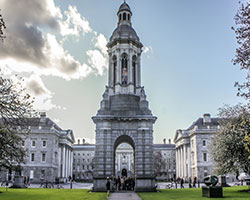 Trinity College Dublin, the University of Dublin is Ireland’s premier university, with a proud tradition of excellence stretching back to its foundation in 1592. The oldest university in Ireland, and one of the oldest in Europe, today Trinity sits at the intersection of the past and the future, and is ideally positioned as a major university in the European Union.
Trinity College Dublin, the University of Dublin is Ireland’s premier university, with a proud tradition of excellence stretching back to its foundation in 1592. The oldest university in Ireland, and one of the oldest in Europe, today Trinity sits at the intersection of the past and the future, and is ideally positioned as a major university in the European Union.
Located in a beautiful campus in the heart of Dublin’s city centre, Trinity is Ireland’s highest ranked university and is ranked joint-101st in the world (QS 2020-21). It is home to 17,000 undergraduate and postgraduate students across all the major disciplines in the arts and humanities, and in business, law, engineering, science, and health sciences.
Trinity’s tradition of independent intellectual inquiry has produced some of the world’s finest, most original minds including the writers Oscar Wilde and Samuel Beckett (Nobel laureate), the scientists William Rowan Hamilton and Ernest Walton (Nobel laureate), the political thinker Edmund Burke, and the former President of Ireland and UNHCR Mary Robinson. This tradition finds expression today in a campus culture of scholarship, innovation, creativity, entrepreneurship and dedication to societal reform.
At Trinity we provide a liberal environment where independence of thought is highly valued and all are encouraged to achieve their potential. We promote a diverse, interdisciplinary, inclusive environment that nurtures ground-breaking research, innovation, and creativity through engaging with issues of global significance.
The Trinity Centre for Asian Studies acts as a focal point for Asian Studies at Trinity College Dublin, and brings together teaching and research in Chinese, Korean and Japanese Studies as well as other regionally-based scholarship and pan-Asian research. Our activities focus on contemporary society and culture, language learning, diaspora studies, and comparative studies including Asian-European studies. The centre’s aim is to promote Asian Studies nationally and internationally, and in so doing, to be the leading knowledge centre in Ireland for policy-makers, business leaders and scholars in the field. The centre organises regular seminars, public lectures and events. The Trinity Centre for Asian Studies was formally opened in October 2015 by the Minister for Foreign Affairs and Trade, Charlie Flanagan, T.D.
Lectures Online (Malaysia & Ireland)
Programme Duration:
Dates: 14, 15, 17 & 18 September 2020
Time: 4pm - 6pm (Malaysia Time - MYT) / 9am - 11am (Irish Standard Time - IST)
Programme Format: Each Lecture - 2 hours session, consists of:
| Monday, 14 September @ 4pm MYT / 9am IST |
|---|
Welcoming Remarks by:
Opening Address by Datin Noorazah Binti Omar, Ministry of Higher Education Malaysia. Introduction to ASEM Education by Nadia Reynders, ASEM Education Secretariat, Brussels. LECTURE 1:
|
| Tuesday, 15 September @ 4pm MYT / 9am IST |
LECTURE 2:
|
| Thursday, 17 September @ 4pm MYT / 9am IST |
LECTURE 3:
|
| Friday, 18 September @ 4pm MYT / 9am IST |
LECTURE 4:
|

Anne Barrington was appointed in 2018 as Special Envoy of the Government of Ireland for Ireland’s successful UN Security Council Campaign for the term 2021-22. Her last posting abroad was as Ireland’s Ambassador to Japan from 2014 to 2018. Anne was Joint Secretary in the North-South Ministerial Council based in Armagh, Ambassador to Tanzania, Kenya and Burundi and served in Ireland’s Embassy in Washington DC, the Consulate General of Ireland and Ireland’s Permanent Mission to the UN, both in New York. When in Ireland Anne’s positions included Director General Europe Division 2011-2014. She also served for two years in the Department of the Taoiseach (Prime Minister’s Office) and was seconded as the Director of the National Forum on Europe. Anne currently chairs the Governance Board of Cúram Centre for Research in Medical Devices NUIG. She is on the boards of Ó Cualann (an affordable housing body), Literature Ireland, the Board of Suas (a development body) and is an adviser to TCAS.
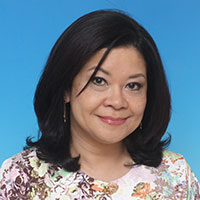
Azirah Hashim is a Professor in the English Language Department, Faculty of Languages and Linguistics and until recently, Executive Director of the Asia-Europe, University of Malaya. She was also Founding Director of the Centre for ASEAN Regionalism at the university. Her research interests include Language Contact in Southeast Asia, English as a Lingua Franca in ASEAN, Language and Law, Higher Education in ASEAN, and Academic and Professional Discourse. Some of her publications include English in Southeast Asia and ASEAN: Transformation of Language Habitats, Routledge co-authored with Gerhard Leitner (2020); Communicating with Asia: the Future of English as a Global Language, Cambridge University Press edited with Gerhard Leitner and Hans-Georg Wolf (2016), International Arbitration Discourse and Parctices in Asia, Routledge edited with Vijay Bhatia et. al (2018), and articles in journals such as English Today, Discourse Studies and Multilingua.
Azirah is Vice-President of the International Association of Applied Linguistics (AILA) and is Founding President of the Malaysian Association of Applied Linguistics, an affiliate of the International Association of Applied Linguistics. She is project leader of an Erasmus+ Capacity Building in Higher Education 'Building research capacity in Malaysia and Laos' (2017-2021). Currently also heading the Jean Monnet Centre of Excellence project on ASEAN and EU in Dialogue (2017-2020), she is very much involved in ASEAN-EU research, seminars and outreach activities. In 2009, she was awarded the Georg Forster Research Fellowship for Experienced Researchers, Alexander von Humboldt Foundation, Germany and is a Fellow of the Foundation. Recently, she was a research fellow at the Trinity Long Room Hub Arts and Humanities Research Institute, Trinity College Dublin.
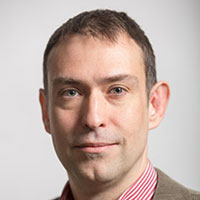
Balázs Apor is Associate Professor in European Studies at Trinity College Dublin. Professor Apor is a historian of Central and Eastern Europe in the 20th Century, with a special focus on the Communist period. His research interests include the study of propaganda and symbolic politics under Communist rule, and the Sovietisation of Eastern Europe after the Second World War. He has a particular interest in the study of leader cults, the invention and dissemination of socialist myths and the functioning of rituals in Soviet-type societies. Apart from several articles on these subjects, he is co-editor of three volumes, and author of the monograph The “Invisible Shining”: The Cult of Mátyás Rákosi in Stalinist Hungary, 1945–1956. Budapest-New York: CEU Press, 2017.

Assistant Professor in the School of Religion, Trinity College Dublin
View ProfileJude Lal Fernando is Assistant Professor and Coordinator of M.Phil Programme in Intercultural Theology and Interreligious Studies at the Irish School of Ecumenics, Trinity College Dublin. He is the Director of Trinity Centre for Post-Conflict Justice and brings praxis-based experience to the academic context in the fields of interreligious studies and international peace studies. His main research interests are religion, peace, and conflict, with a specific focus on the role of interreligious dialogue in peace-building, and ethno-nationalisms and geopolitics, focusing on Sri Lanka in particular, and Asia more generally. He has authored two books and his research has been published as journal articles and book chapters, presented at international conferences in Asia, Latin America, and Europe. Some of these have been translated into German, French, Italian, Korean, Portuguese, and Spanish.
Prior to his current appointment Dr. Fernando held a five-year research fellowship (2008-2013), conducting a comparative analysis of Northern Ireland and Sri Lanka, and examining issues in interreligious dialogue, and the emerging currents of globalisation in Europe and Asia. This fellowship was funded by the three institutes in which he teaches - The Irish School of Ecumenics (ISE Trust), Trinity College, Carlow College, and The Priory Institute, Tallaght, Ireland. As a post-graduate researcher at the Irish School of Ecumenics, his M.Phil. thesis received the James Haire Prize for best dissertation in 2004-2005, and was subsequently published as a monograph under the title A Paradigm for a Peace Movement: Thich Nhat Hanh and Martin Luther King Jr. He was awarded a post-graduate scholarship from Trinity College Dublin to continue his studies, and his doctoral research Religion, Conflict and Peace in Sri Lanka: The Politics of Interpretations of Nationhoods was published in 2013 (Berlin: LIT Verlag). He is a founding member and a member of the editorial board of International Journal of Asian Christianity.
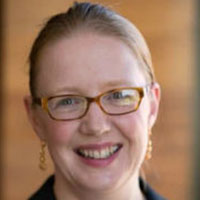
Associate Professor in Applied Linguistics and Director of the Trinity Centre for Asian Studies, Trinity College Dublin
View ProfileLorna Carson is Head of the School of Linguistic, Speech and Communication Sciences and Associate Professor in Applied Linguistics. She is Director of the Trinity Centre for Asian Studies, a multidisciplinary teaching and research centre which brings together the university's expertise in Japanese, Korean and Chinese Studies. She holds a B.A. (Mod.), M.Phil. and Ph.D. from Trinity College Dublin, and an M.A. from the College of Europe, Bruges. In 2015 she was elected a Fellow of Trinity College Dublin.
Professor Carson's research on language learning addresses issues located at the interface between individual and societal multilingualism, with a particular attention on the language classroom, with a focus on language learning, language education policy and assessment. Her publications include "Language and Identity in Europe: The Multilingual City and its Citizens" (2020, Peter Lang), "The Multilingual City: Vitality, Conflict and Change", co-edited with Lid King (2016, Multilingual Matters); "Language Learner Autonomy: Policy, Curriculum, Classroom", co-edited with Breffni O'Rourke (2010, Peter Lang), and "Multilingualism in Europe: A Case Study" (2003, 2005, Peter Lang).
She is a former President of IRAAL, the Irish Association for Applied Linguistics (2014-2017). She is a member of the Governing Body of Marino Institute of Education, and sits on its Academic Council.

Nadia Reynders is co-coordinator ASEM Education Secretariat Belgium. She works since 2013 as a policy advisor and project coordinator at the Flemish Ministry of Education and Training in the field of lifelong learning. Before 2013 she has been managing different educational progammes in the sector of development cooperation, mainly in Teacher Training. In these programmes she worked closely with Ministries of Education in South-East Asia (Cambodia, Laos and Vietnam). Currently, she is coordinating the ASEM Education Secretariat, as a representative from the Flemish Ministry of Education, together with her colleague Emilie Degueldre (French Community representative). In this position, she is supporting and following up the ASEM Education Process which consists of activities, programs and projects to stimulate Europe-Asia collaboration and exchange in the field of Higher Education and Lifelong Learning.
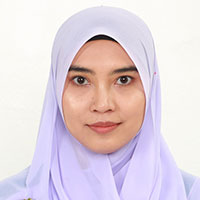
Deputy Executive Director (Academic), Asia-Europe Institute, Universiti Malaya
View ProfileNurliana Kamaruddin is Deputy Executive Director of Academic Affairs at the Asia-Europe Institute, Universiti Malaya. She obtained her PhD in International Studies specialising in Development Cooperation from Ewha Womans University. Her area of research includes international politics and development with a focus on ASEAN and East Asian relations.

Dr Rahul Mishra is a Senior Lecturer at the Asia-Europe Institute. Prior to this, he was a Consultant with the Foreign Service Institute, Ministry of External Affairs, Government of India. At the institute, his primary responsibilities were to coordinate training modules for visiting foreign diplomats and give lectures on Asian security and Southeast Asian issues. Before joining the FSI, Dr Mishra worked with the Indian Council of World Affairs, New Delhi, as a Research Fellow for more than four years.
Recipient of the Asia Fellowship of the East-West Center in Washington D.C., and the Korean government Fellowship, Dr Mishra worked as a Researcher at the IDSA, New Delhi for four years. In 2012-13, Dr Mishra was a Visiting Research Fellow at S. Rajaratnam School of International Studies, (Singapore). Prior to that, he was affiliated with National University of Singapore. He was awarded the National Research Fellowship of the University Grants Commission, Government of India to pursue research in international relations. He earned his doctorate from the Jawaharlal Nehru University.
He specialises on ASEAN regionalism, comparative regionalism, politico-security affairs of the Southeast Asian region, and role of major & middle powers in the Indo-Pacific region especially in the context of rise of China. His latest publications include India’s Eastward Engagement from Antiquity to Act East Policy (Co-authored with Prof. S.D. Muni, SAGE Publications, 2019), and Asia and Europe in the 21st Century New Anxieties, New Opportunities (co-edited with Prof. Azirah Hashim and Tony Milner, Routledge, 2020 [forthcoming]).
He has written op-eds for the New Straits Times, Jakarta Post, Financial Times, Indian Express, Deccan Herald, The Star (Kenya) and Mint etc., and appeared on news media such as BBC, Deutsche Welle, China Central Television (CCTV), Channel News Asia, Phoenix TV (Hong Kong), and several Indian news channels.
He is a weekly opinion columnist with the Deutsche Welle, Germany.

Emeritus Professor Dr. D.S. Ranjit Singh is currently affiliated to the College of Law, Government and International Studies, Universiti Utara Malaysia, Sintok, Kedah, Malaysia. From 1973 to 2004, Ranjit served with the Department of History, Faculty of Arts and Social Science, Universiti Malaya in various positions, including as Tutor (1973-79), Lecturer (1979-90), Associate Professor (1991-97) and Professor (1998-2004). Since 2006, Ranjit has been attached to the School of International Studies (SoIS), Universiti Utara Malaysia. His areas of specialization include Malaysian History (Sabah and Sarawak); Political History of Southeast Asia, especially Brunei; International Relations; and Strategic Studies. Among his major publications are: Brunei 1838-1983: The Problems of Political Survival (Singapore: Oxofrd University Press, 1984; reprinted, 1991) and The Making of Sabah 1865-1941: The Dynamics of Indigenous Society (Kuala Lumpur: Unviersity of Malaya Press, 2000. 3rd ed., 2011, Gevernment of Sabah).
Ranjit was Visiting Scholar/Visiting Professor at the following institutions: School of Oriental and African Studies, University of London (1984,1991); University of Hiroshima (1996); University of Indiana and University of Utah (1997); and National University of La Plata, Argentina (2000). He was consultant to the Ministry of Foreign Affairs and was the leader of the team which prepared the historical evidence for Malaysia's case at the ICJ pertaining to the country's sovereignty over Pulau Sipadan and Pulau Ligitan. In 2002, Malaysia won the case when the ICJ, in a historic judgment, awarded sovereignty over the two islands to Malaysia. From 2011 to 2012, he served as a member of the Social Committee to study the history curriculum and textbooks for secondary schools. The report of the committee was submitted to the Ministry of Education on 15 May 2012. In October 2012, Universiti Utara Malaysia conferred upon him the prestigious title of Emeritus Professor.
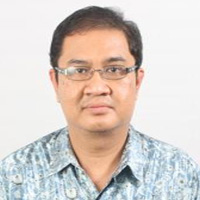
Dr. Roy Anthony Rogers A/l Peter Rogers is a Senior Lecturer from the Department of International and Strategic Studies, Faculty of Arts and Social Sciences, Universiti Malaya, Kuala Lumpur.
His research interest includes International Relations (Narcotic in the Golden Triangle (Southeast Asia)) Strategic Studies (Development of Modern Strategy) Political Theory and Political Philosophy (Theories of International Relations) International Relations (Foreign Policy) International Relations (Central Asia and Xinjiang, China)
Registration can done here: https://bit.ly/asemss2020
Once registered, you will receive Zoom join link in your email.
Warm Prompt: The Certification will only be given to the Participants who have completed the Whole SUMMER PROGRAMME ( "Online Lectures" and "Field Trips" ).
Last Update: 22/11/2021